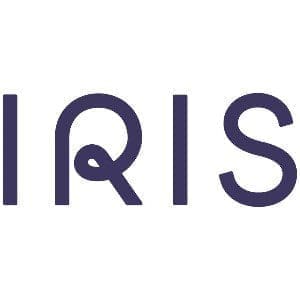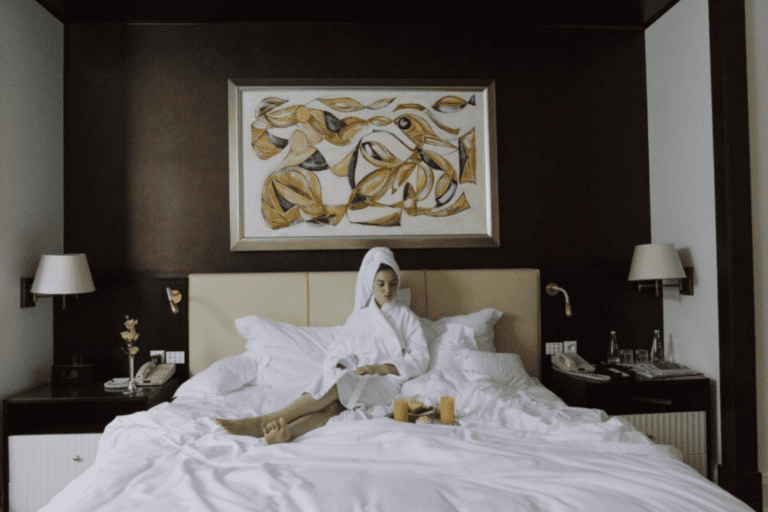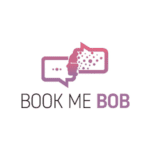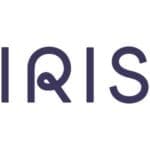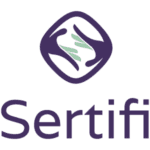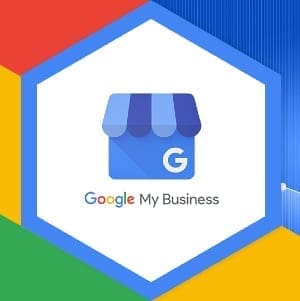For the very few who may not know, Netflix is a media sharing and streaming service that allows its subscribers to watch a variety of TV shows, movies, documentaries and other viewable content without the burden of exterior adverts.
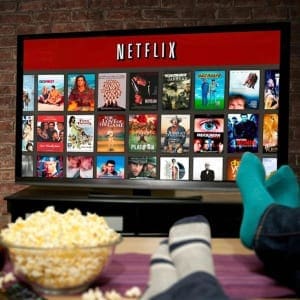 Booming with popularity, Netflix’s growth story has been remarkable, with the company reporting to have over 182 million paid subscriptions worldwide as of April 2020.
Booming with popularity, Netflix’s growth story has been remarkable, with the company reporting to have over 182 million paid subscriptions worldwide as of April 2020.
Now the question is: what could hoteliers possibly take away from such a company so far removed from hospitality? Truth be told, much more than you would think. There are so many key drivers of Netflix’s success but for the purpose of this exercise, let’s focus on how Netflix approaches the online user experience and how hoteliers could apply this to their own hotel websites.
Show off!
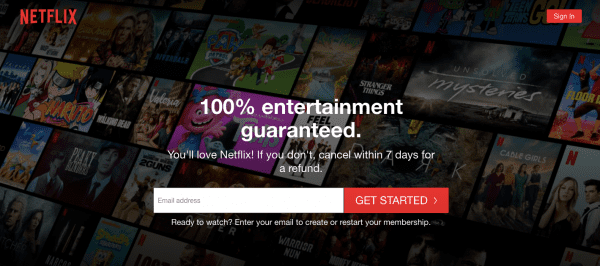
The Netflix slogan “Watch anywhere, cancel anytime” was created to address Netflix’s closest competitors and sets it aside from the rest. This slogan encompasses two of Netflix’s unique selling points (USPs) and was often the first thing that the potential subscriber saw on the website after the titular Netflix in its signature red. Although the specific wording on their website may constantly evolve, the clarity of the message stays the same. Stressing their unique positioning and values right from the outset, alongside branded visual stimulation, enables the online giant to convey key messages that hit home and undoubtedly help to keep new subscriptions soaring.
Hotel brands, just as much as Netflix, have core values and distinctive customer propositions, and they should shout them from the rooftops. With so much choice available for travelers, from competitor hotels but also other booking options for your own brand such as OTAs, it’s critical to highlight what makes your property unique the instant a potential guest lands on your website. Visitors need to know exactly why they should pick your hotel and not the one around the corner.
Tailor-made just for you
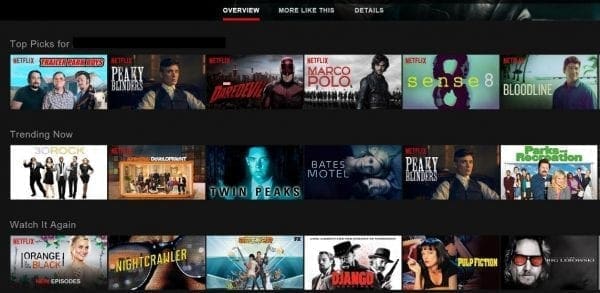
With consumers increasingly craving a personalized experience and Netflix’s endless collection of content to display, the company made the smart move of developing its technology to ensure that the content displayed to each individual user is relevant and adheres to their specific viewing preferences. Adopting an artificial intelligence (AI) focus, Netflix shies away from traditional customer segmentation, by automatically sorting users into cohorts of “taste communities”; groups of users who display similar patterns of streaming behavior. Netflix also provides content to specific users on a contextual basis, centred around the fact that users change behavior according to aspects such as the time of day, day of the week or holidays. Using machine learning technology in this way, Netflix guarantees a highly engaging experience for every single one of its users.
When you think about it, this approach makes total sense to engage travelers who are searching for a hotel. After all, hospitality is personal. Technology is no longer a luxury and can be employed directly as a tool to boost hotel revenue. Just like those who watch Netflix, guests prefer personalized experiences. Harnessing machine learning techniques to predict user booking behavior and then automatically personalizing website content to increase direct conversations is known as Predictive Personalization. Pioneered in hospitality by The Hotels Network, this powerful combination means you can deliver the messages and offers most suitable for each visitor to your hotel website to maximize engagement and revenue. Managed effectively, this type of hypertargeting creates a higher chance of direct booking conversions, which in the current climate, can only be beneficial.
Testing makes perfect
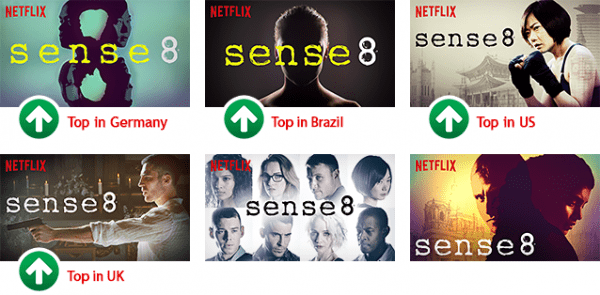
Using AI technology, Netflix employs a tactic they called “consumer science” whereby the individual viewer is shown different creatives for the same movie or programme based on their previous watch history. Let’s take the example of Stranger Things, the hit science fiction horror series. If the user’s preference is centred largely around the romantic genre, Netflix may show them a promotional image featuring two main characters with a potential love element. Horror fans, however, are more likely to be shown an image with blood or something more associated with horror scenes. Nothing is left to chance – through constant testing, Netflix is able to show users content to maximize their watch rate. By conducting multivariate or A/B tests incessantly, Netflix can not only naturally draw the attention of users to increase engagement but can also experiment with new ideas and fine tune all aspects of the user experience.
For hotels, showing the right content to the right user is just as important. Why show offers of a romantic getaway for two to an individual traveler searching for a business trip? Hotel websites should use A/B testing to figure not only what content to show each person, but also how font, message, colours etc. (the list goes on) can affect user conversion. Similar to the Netflix approach, A/B testing becomes even more powerful for hotel brands when combined with machine learning techniques. For example, clients of Oraculo which is powered by an algorithm specifically for hotels, are able to automatically deliver and test highly targeted website offers and messages in real time based on each individual’s behavior. If Netflix can teach us anything, it is that the specific modification of content on a per user basis can generate a higher level of interest and an all over more engaged user.
Making it flow

Everything boils down to making the user experience as smooth and efficient as possible. Through a method of convenience programming, Netflix has created countless reasons for users to stay subscribing. Netflix offers their users a seamless transition between shows, meaning that the user does not have to actively select the next show in the series, saving users that extra click. Netflix also offers a continue watching section where you can return to shows that you have already watched and continue from your last viewing place. I could list countless other examples of outstanding UX from Netflix but in short, everything is sleek. It just works well.
These techniques are definitely not exclusive to Netflix and the concepts can be fully translatable to the hotel website experience. Understandably, the smoother and more relevant the online booking process, the more likely visitors will feel convinced and decide to book directly on your hotel website. By removing friction every step of the way and taking a targeted approach to display hyper-relevant content, you’ll be more successful at leading potential guests down the direct booking funnel.
And for those visitors who aren’t quite ready to confirm a booking today? Take inspiration from how Netflix allows customers to pick up their viewing where they left off. You too can use technology to let visitors save their search and automatically send them an email with a link taking them directly to the booking engine so they can easily resume their previous search and complete the reservation. Simple.
So, there you have it. Seemingly vastly different from each other, there might just be some proven tactics that hotel brands can learn from Netflix’s success story. The hospitality industry generates huge volumes of data that unfortunately often go underused. Today’s technology and advances in machine learning applications make it possible to process and extract meaningful insights from this data such as predicting user behaviour. Deciding to adopt the latest tools to personalize the online user experience for visitors to your hotel brand’s website could be your key to growing your direct booking channel.
By embracing technology and the core concept of giving users what they want, Netflix has reached new heights most others haven’t just yet. Don’t just sit back, remember; what Netflix can do, you can do as well.





